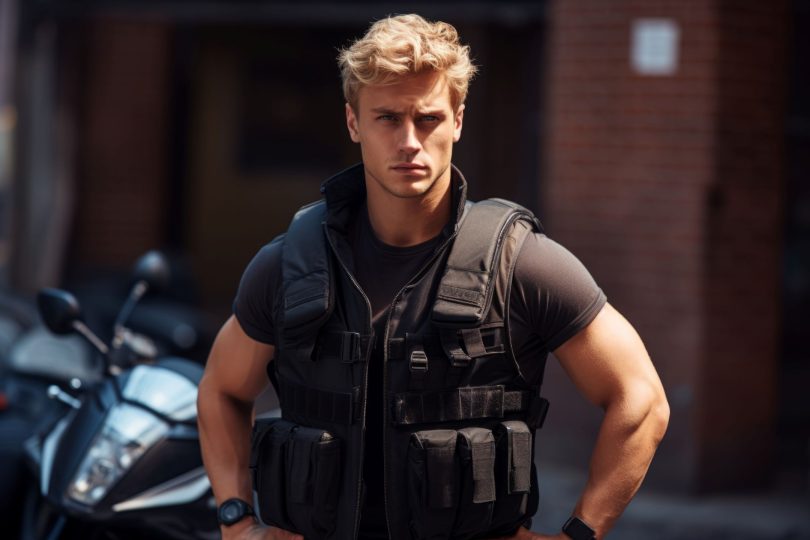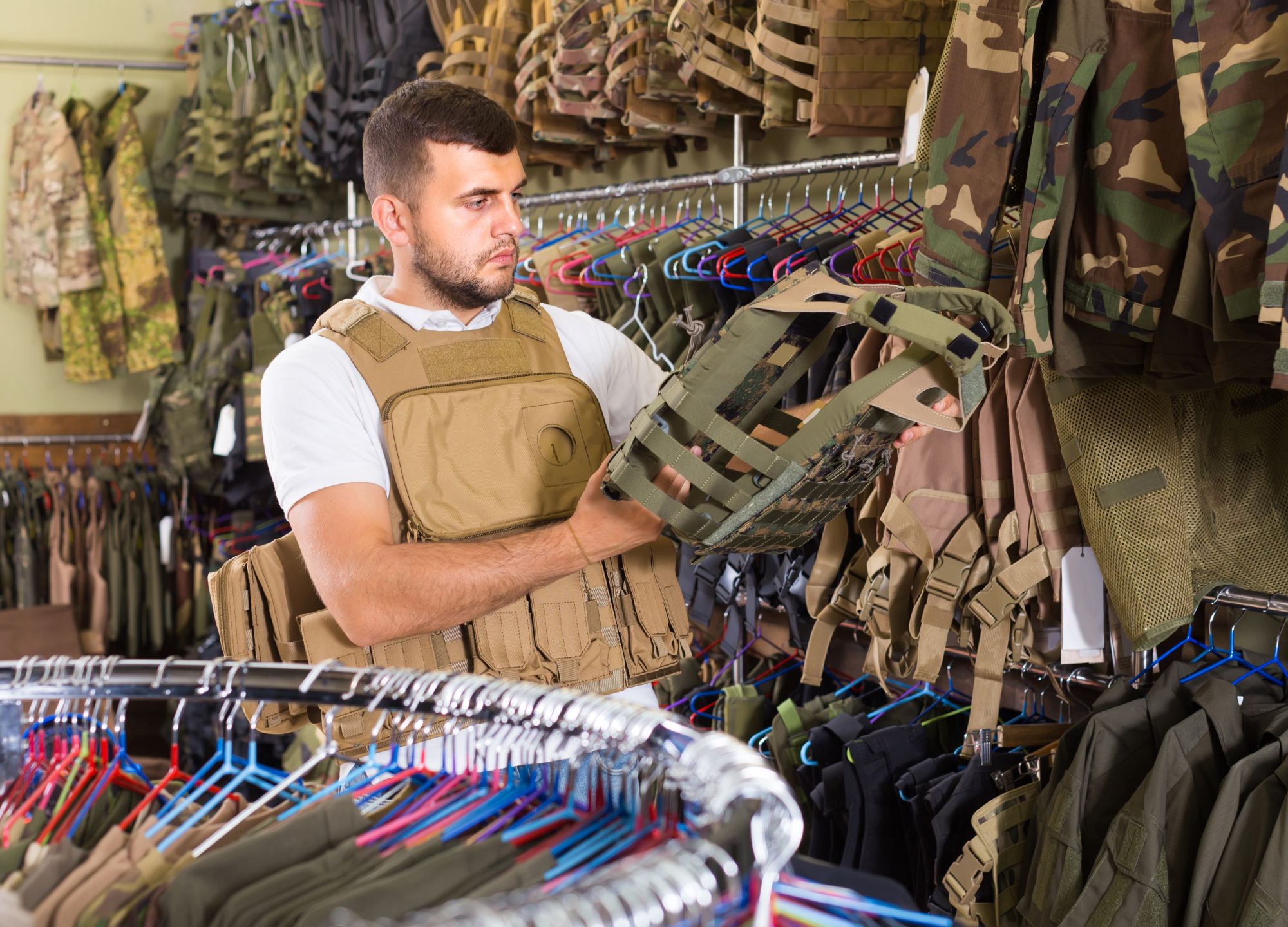The use of body armor, such as a bulletproof vest has become a topic of increasing interest among civilians in recent years. With rising concerns about personal safety and self-defense, many individuals consider the practicality and legality of wearing protective gear. However, the laws surrounding civilian use of bulletproof vests can vary significantly depending on location, intent, and circumstances.
This article explores the legal landscape of civilian body armor use in the United States, addressing key considerations and potential restrictions.
Contents
Understanding Bulletproof Vests
A bulletproof vest, or body armor, is designed to absorb and reduce the impact of firearm projectiles and shrapnel. Modern vests are typically made from advanced materials like Kevlar, polyethylene, or ceramic plates, offering varying levels of protection. While these vests are commonly associated with law enforcement and military personnel, they’re also available for civilian purchase. However, the legality of wearing one depends on several factors, including jurisdiction and the wearer’s background.
To learn more about a bulletproof vest and whether wearing it as a civilian is legal, one may check out reputable websites to obtain valuable insights about the topic.
Federal Laws on Bulletproof Vests
In the United States, federal law generally allows civilians to purchase and wear bulletproof vests. There are no nationwide restrictions prohibiting the ownership or use of body armor by private citizens. However, there are exceptions to this rule. For instance, individuals convicted of a violent felony are prohibited from owning or wearing body armor under federal law.
State and Local Regulations
While federal law provides a broad framework, state and local governments have the authority to impose additional regulations on using bulletproof vests. Some states have stricter rules concerning the intent behind wearing body armor. For example, in states like Connecticut and New York, wearing a bulletproof vest during the commission of a crime can result in enhanced penalties. Other states may require permits or restrict the sale of certain types of body armor, such as those capable of stopping high-caliber rounds.
Intent and Circumstances Matter
The legality of wearing a bulletproof vest depends on the wearer’s intent and the circumstances in which it’s worn. For instance, a civilian wearing body armor for personal adequate protection during high-risk activities, such as working in a dangerous neighborhood, is generally within their legal rights.
However, wearing a vest while engaging in criminal activity, such as armed robbery or assault, can lead to severe legal consequences. Law enforcement agencies usually view the use of body armor in such contexts as an aggravating factor, indicating premeditation and a heightened threat to public safety.
Purchasing and Ownership Considerations
Civilians considering the purchase of a bulletproof vest must familiarize themselves with the legal requirements and restrictions specific to their location. While most states in the U.S. don’t mandate background checks or permits for buying body armor, some retailers may voluntarily enforce such measures to align with federal and state regulations. It’s also important to note that certain types of body armor, particularly Level III or IV vests, which offer essential protection against rifle rounds, may face stricter regulations due to their advanced capabilities.
Understanding these nuances ensures compliance with the law and helps buyers make informed decisions when selecting the appropriate protective gear for their needs.
Ethical and Social Implications
Beyond the legal aspects, the decision to wear a bulletproof vest raises ethical and social questions. Some argue that the widespread use of body armor by civilians could escalate tensions and lead to an arms race between criminals and law-abiding citizens. Others contend that individuals have the right to protect themselves in an increasingly uncertain world. These debates highlight the complex interplay between personal safety, public security, and individual freedoms.
Practical Considerations for Civilians
For civilians contemplating using a bulletproof vest, it’s crucial to balance the practical advantages with potential downsides. Body armor can offer a heightened sense of security, particularly in high-risk environments, but it shouldn’t replace essential safety practices like situational awareness and conflict avoidance. Wearing a vest may also attract unnecessary attention or lead to misunderstandings, especially in public or non-threatening settings.
For example, bystanders or law enforcement might misinterpret the intent behind wearing such gear. As a result, individuals must thoroughly assess their unique needs, lifestyle, and local context before deciding to invest in protective equipment like bulletproof vests.
Final Thoughts
Given the information mentioned above, the legality of wearing a bulletproof vest as a civilian largely depends on federal, state, and local laws and the wearer’s intent and background. While federal law generally permits the ownership and use of body armor, certain restrictions apply to individuals with violent felony convictions. State and local regulations may impose additional limitations, particularly concerning the circumstances in which body armor is worn. Ultimately, using body armor is a personal choice that requires careful consideration of legal, social, and safety factors.








